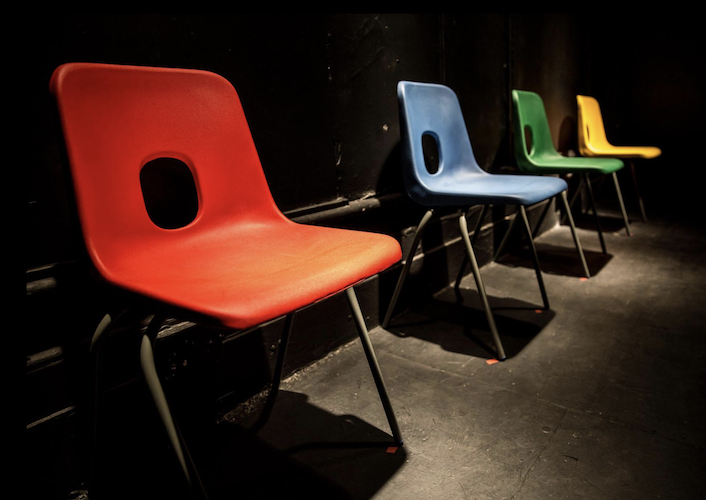The government has released a five step plan for theatres to reopen, which should be good news. Sadly, it isn’t worth the vellum it’s written on. “It’s not helpful in any way,” says Jez Bond, artistic director and joint CEO of the Park Theatre. “It’s a pointless exercise.” The problem is that steps three to five of the plan – the steps that will put actual bums on actual seats – have no dates attached to them. As Anthony Fagan, operations manager of the Lion and Unicorn theatre in Kentish Town puts it: “Without having any further information, all our plans are hypothetical.” Tom Littler, artistic director of the Jermyn Street Theatre goes further: “There’s no point rehearsing [a play] if we can’t put it on.”
The theatre industry has been devastated by the effects of the coronavirus pandemic and the lockdown. This is an industry that thrives on creativity, and practitioners within it are doing their best to adapt. We are seeing plays on Zoom and weekly releases from the major theatres of previous works. The artistic element is flourishing and finding a way. It always does. The show must go on. “Our industry is at its best when back is against the ropes,” Fagan says. “We always bounce back. The resilience of theatre is outstanding.” He’s right. But theatres need audiences. Actors need them for the energy they bring to the room and, equally, theatres need them for the money they bring to keep their enterprise going.
Love of art is all very well, but it doesn’t pay the bills. Theatre makers feel very let down by the government and by its culture secretary Oliver Dowden. Fagan may be optimistic about theatre’s resilience, but he is scornful of the government’s treatment of the industry. “We were the hardest hit and the last to return”. If theatres are forced to implement social distancing measures, their design means that a two metre rules would mean most could only fill 20 per cent of their capacity. At one metre, this goes up to 30 per cent. Most theatres need to fill up to 70 per cent to break even and, of course, that isn’t guaranteed. Audiences may – at some point – no longer be mandated to stay away. But if the virus is still out there and a vaccine hasn’t come on line, they might choose not to attend a crowded theatrical performance.
Bond says that Park and many other theatres like it will only be able to open if social distancing requirements end or the government offers subsidies to make up the shortfall. Bertie Watkins, who runs immersive company Colab Theatre, says “The government are not going to help us. They realise how much money theatre has lost, and they probably can’t be bothered to pay us off. So they’ll have to let us reopen and they’ll assume we’ll start to make money.”
It is not only theatres themselves that have been hit. Their problems are also affecting a vast creative feeder industry that surrounds them. Terri Paddock has been working in theatre marketing for over 20 years. She held one of the last events before lockdown – a Q & A with Simon Stephens at the Old Red Lion. But she has no hopes for what remains of the theatre industry being able to afford her services again. “I have no expectations of revenue from theatre any time soon, if ever. It is unhelpful for me to expect the theatre industry in its current state to provide me with a livelihood.”
Some theatre makers are finding ways to move forward. The Colab’s Factory group recently moved their show into a pub venue and will be opening that up in July for takeaway beer. But many others are not able to do the same. Bond says that while the Park loves its café space for the community, aspects of it actually doesn’t bring in much income, especially when it isn’t being used by an audience. Colab have been taking measures to Covid-proof their venue and performances. These include making the audience static (unusual for an immersive show), increasing toilet capacity and selling tickets in pods of four to six people. This is in the hope that theatre will move into phase three in August. But as Bond points out, “All deep cleaning measures take infrastructure spending at a time when we have less money than ever.”
Again, it comes back to a need for public investment in an industry that is so essential to the UK and particularly to London. There is growing anger from the theatre community towards the government and a sense of abandonment fuelled by comparisons with what is happening in other countries. As Tom Littler puts it “It’s the same disease in Germany, just a different government.”
Just as our government has blundered in its response to Covid, it has behaved haplessly in its approach to how and when the theatre industry can safely reopen. The impact on the London economy should not be underestimated or lost in the mix of all the other things they have got wrong.
Emma Burnell is a freelance writer and the person behind Political Human. Follow her on Twitter. Image from Lion & Unicorn theatre website.
OnLondon.co.uk exists to provide fair, thorough, and resolutely anti-populist news, comment and analysis about the UK’s capital city. It now depends more than ever on donations from readers. Give £5 a month or £50 a year and you will receive the On London Extra Thursday email, which rounds up London news, views and information from a wide range of sources. Click here to donate via Donorbox or contact davehillonlondon@gmail.com. Thanks.

